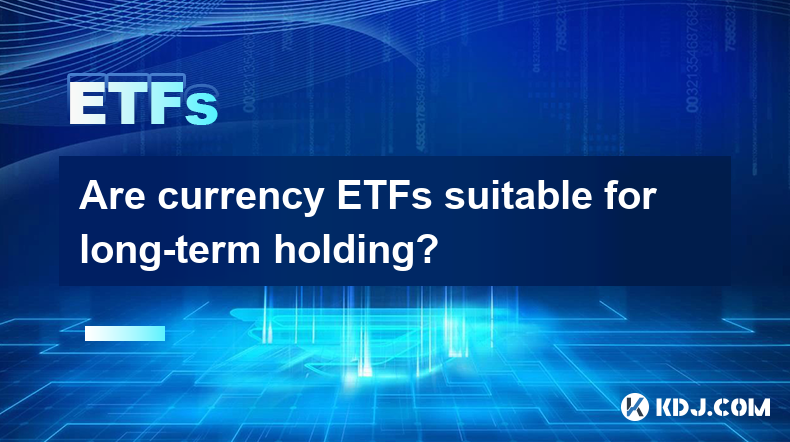-
 Bitcoin
Bitcoin $88,210.6273
1.11% -
 Ethereum
Ethereum $1,583.4647
-3.31% -
 Tether USDt
Tether USDt $1.0001
0.01% -
 XRP
XRP $2.0863
-1.39% -
 BNB
BNB $600.3082
-0.60% -
 Solana
Solana $139.2799
-0.26% -
 USDC
USDC $0.9999
0.00% -
 Dogecoin
Dogecoin $0.1615
0.68% -
 TRON
TRON $0.2460
0.59% -
 Cardano
Cardano $0.6259
-2.11% -
 Chainlink
Chainlink $13.1442
-2.79% -
 UNUS SED LEO
UNUS SED LEO $9.1314
-2.97% -
 Avalanche
Avalanche $19.9362
-0.27% -
 Stellar
Stellar $0.2483
-0.83% -
 Toncoin
Toncoin $2.9261
-3.27% -
 Shiba Inu
Shiba Inu $0.0...01245
-1.50% -
 Sui
Sui $2.2359
1.01% -
 Hedera
Hedera $0.1707
-0.15% -
 Bitcoin Cash
Bitcoin Cash $345.2366
1.60% -
 Hyperliquid
Hyperliquid $18.5882
3.98% -
 Litecoin
Litecoin $78.9028
-0.17% -
 Polkadot
Polkadot $3.7550
-4.00% -
 Dai
Dai $1.0000
-0.01% -
 Bitget Token
Bitget Token $4.4634
-1.87% -
 Ethena USDe
Ethena USDe $0.9992
-0.01% -
 Pi
Pi $0.6331
-0.71% -
 Monero
Monero $215.2673
-0.14% -
 Pepe
Pepe $0.0...08009
3.09% -
 Uniswap
Uniswap $5.2814
-2.61% -
 OKB
OKB $50.9064
-0.56%
Are currency ETFs suitable for long-term holding?
Currency ETFs provide convenience and diversification in long-term currency holding strategies, but their suitability depends on factors like investment objective, risk tolerance, time horizon, and overall market conditions.
Jan 07, 2025 at 10:04 am

Key Points:
- Understanding Currency ETFs: Definition, Types, and Benefits
- Pros and Cons of Holding Currency ETFs Long-Term
- Alternative Investment Options for Long-Term Currency Holdings
- Factors to Consider Before Investing in Currency ETFs
- Best Practices for Long-Term Currency ETF Investing
Are Currency ETFs Suitable for Long-Term Holding?
Currency exchange-traded funds (ETFs) provide investors with exposure to foreign currencies without the need for complex trading or direct ownership of underlying assets. While ETFs offer convenience and diversification, their suitability for long-term holding depends on various factors.
Understanding Currency ETFs
Currency ETFs are baskets of securities, typically futures contracts, that track the value of a specific currency against a base currency, usually the U.S. dollar. They offer several advantages over direct currency trading, including lower transaction costs, liquidity, and portfolio diversification.
Pros of Holding Currency ETFs Long-Term
- Diversification: Currency ETFs diversify portfolios across currencies, reducing the risk associated with fluctuations in single currencies.
- Hedging against currency risk: Currency ETFs can help protect investments against unfavorable movements in foreign currency exchange rates.
- Low entry barriers: ETFs provide an accessible way to invest in foreign currencies, eliminating the need for substantial capital or currency exchange fees.
Cons of Holding Currency ETFs Long-Term
- Currency fluctuations: Currency ETFs are subject to market volatility and can experience significant value swings over the long term.
- Carry costs: ETFs may incur expenses, such as management fees and underlying futures contract financing costs, which can erode returns over time.
- Limited exposure: Currency ETFs only provide indirect exposure to foreign currencies, which can be less advantageous than direct ownership in certain situations.
Alternative Investment Options for Long-Term Currency Holdings
Investors seeking long-term currency exposure may consider alternative options, such as:
- Spot currency trading: Direct buying and selling of currencies on the foreign exchange market, but requires expertise and higher transaction costs.
- Forward contracts: Customized agreements to exchange currencies at a predetermined rate and date, providing greater flexibility than ETFs.
- Currency funds: Actively managed mutual funds that invest in baskets of foreign currencies, offering diversification and professional fund management.
Factors to Consider Before Investing in Currency ETFs
- Investment objective: Determine the specific currency exposure and return expectations.
- Risk tolerance: Evaluate the potential for currency value fluctuations and the impact on portfolio risk.
- Time horizon: Consider the length of time the investment will be held, as currency values can be volatile in the short term.
- Fees and expenses: Examine the management fees and other expenses associated with the ETF.
- Currency trends: Monitor the economic and political conditions of the underlying currency to anticipate potential value changes.
Best Practices for Long-Term Currency ETF Investing
- Diversify holdings: Invest in multiple currency ETFs to mitigate risks associated with individual currencies.
- Monitor market conditions: Regularly review economic indicators and currency trends to make informed decisions.
- Set exit strategies: Establish clear criteria for selling the ETF based on specific performance targets or market conditions.
- Use limit orders: Utilize limit orders when buying or selling to control the execution price and minimize market impact.
- Rebalance periodically: Adjust the ETF portfolio over time to maintain the desired currency exposures.
FAQs
Q: Are currency ETFs a guaranteed investment?
A: No, currency ETFs are subject to market volatility and can experience significant value swings over the long term.
Q: Do currency ETFs pay dividends?
A: No, unlike traditional stock ETFs, currency ETFs typically do not pay dividends.
Q: Is there a minimum investment amount for currency ETFs?
A: No, most currency ETFs have no minimum investment amount, allowing for flexibility and scaled investments.
Q: Can I invest in currency ETFs if I am not a resident of the United States?
A: Yes, many currency ETFs are available to investors internationally, subject to local regulations.
Q: What are some examples of popular currency ETFs?
A: Some popular currency ETFs include:
* Invesco CurrencyShares Euro Trust (FXE)
* ProShares UltraShort Yen (YCS)
* JPMorgan CurrencyShares Swiss Franc Trust (FXF)
* WisdomTree Bloomberg British Pound Sterling Hedged Currency Trust (HEDJ)
* iShares MSCI Canada ETF (EWC)Disclaimer:info@kdj.com
The information provided is not trading advice. kdj.com does not assume any responsibility for any investments made based on the information provided in this article. Cryptocurrencies are highly volatile and it is highly recommended that you invest with caution after thorough research!
If you believe that the content used on this website infringes your copyright, please contact us immediately (info@kdj.com) and we will delete it promptly.
- Coinbase Listing Sparks Speculation Tied to Trump’s SEC Pick
- 2025-04-22 12:40:11
- Hyperlane testnet successfully launched on Binance Wallet & Binance HODLer App.
- 2025-04-22 12:40:11
- The Bitcoin price rise to $87,000 created contrasting profitability outcomes between investors in the market.
- 2025-04-22 12:35:12
- Base chain daily coin issuance exceeds Solana
- 2025-04-22 12:35:12
- From Sony's new web3 project to new updates from Bybit, here's a roundup of the top crypto stories you may have missed.
- 2025-04-22 12:30:11
- Decentraland [MANA] Breaks Key Overhead Resistance, Surges by 8% Within a Day
- 2025-04-22 12:30:11
Related knowledge

What role does SEC play in Bitcoin ETF approval?
Feb 25,2025 at 06:48am
Key Points:SEC's Role in Bitcoin ETF Approval ProcessHistorical Efforts to Establish a Bitcoin ETFSEC's Criteria for Bitcoin ETF ApprovalPotential Impact of a Bitcoin ETF on the Cryptocurrency MarketTimeline and Outlook for Bitcoin ETF ApprovalArticle:SEC Play in Bitcoin ETF ApprovalThe United States Securities and Exchange Commission (SEC) plays a crit...

Who is eligible to issue Bitcoin ETFs?
Feb 25,2025 at 11:13am
Key Points:Only regulated financial institutions with the necessary expertise and infrastructure are eligible to issue Bitcoin ETFs.The Securities and Exchange Commission (SEC) has not yet approved any spot Bitcoin ETFs, but has approved several futures-based ETFs.Applicants must meet stringent requirements, including having a strong track record and su...

What impact does Bitcoin ETF have on the market?
Feb 25,2025 at 11:37am
Key Points:Introduction to Bitcoin ETFs and their role in the cryptocurrency marketHistorical development and performance of Bitcoin ETFsPotential benefits of Bitcoin ETFs for investors and the marketRisks and limitations associated with Bitcoin ETFsRegulatory considerations and their impact on Bitcoin ETFsArticle:Introduction to Bitcoin ETFsBitcoin exc...

Which investors are Bitcoin ETFs suitable for?
Feb 27,2025 at 04:01pm
Key Points:Understanding Bitcoin ETFsBenefits of Bitcoin ETFsSuitability of Bitcoin ETFs for Different InvestorsAssessing Risk Tolerance and Investment GoalsConsidering Short-Term and Long-Term StrategiesExamining Tax ImplicationsSeeking Professional AdviceUnderstanding Bitcoin ETFsBitcoin exchange-traded funds (ETFs) are investment vehicles that track ...

What is the administrative expenses of Bitcoin ETFs?
Feb 26,2025 at 12:24am
Key Points:Administrative expenses are a crucial factor to consider when evaluating Bitcoin ETFs.These expenses can significantly impact the performance of the fund and ultimately the investor's returns.Understanding the various components of administrative expenses is essential for informed decision-making.Comparing administrative expenses across diffe...

What are the fees for purchasing Bitcoin ETFs?
Feb 27,2025 at 07:13pm
Key Points:Bitcoin exchange-traded funds (ETFs) are a cost-effective and regulated way to gain exposure to Bitcoin.Fees associated with Bitcoin ETF purchases vary depending on the platform, trading volume, and account type.It is essential to evaluate fee structures carefully to optimize investment returns.Fees Associated with Purchasing Bitcoin ETFs1. B...

What role does SEC play in Bitcoin ETF approval?
Feb 25,2025 at 06:48am
Key Points:SEC's Role in Bitcoin ETF Approval ProcessHistorical Efforts to Establish a Bitcoin ETFSEC's Criteria for Bitcoin ETF ApprovalPotential Impact of a Bitcoin ETF on the Cryptocurrency MarketTimeline and Outlook for Bitcoin ETF ApprovalArticle:SEC Play in Bitcoin ETF ApprovalThe United States Securities and Exchange Commission (SEC) plays a crit...

Who is eligible to issue Bitcoin ETFs?
Feb 25,2025 at 11:13am
Key Points:Only regulated financial institutions with the necessary expertise and infrastructure are eligible to issue Bitcoin ETFs.The Securities and Exchange Commission (SEC) has not yet approved any spot Bitcoin ETFs, but has approved several futures-based ETFs.Applicants must meet stringent requirements, including having a strong track record and su...

What impact does Bitcoin ETF have on the market?
Feb 25,2025 at 11:37am
Key Points:Introduction to Bitcoin ETFs and their role in the cryptocurrency marketHistorical development and performance of Bitcoin ETFsPotential benefits of Bitcoin ETFs for investors and the marketRisks and limitations associated with Bitcoin ETFsRegulatory considerations and their impact on Bitcoin ETFsArticle:Introduction to Bitcoin ETFsBitcoin exc...

Which investors are Bitcoin ETFs suitable for?
Feb 27,2025 at 04:01pm
Key Points:Understanding Bitcoin ETFsBenefits of Bitcoin ETFsSuitability of Bitcoin ETFs for Different InvestorsAssessing Risk Tolerance and Investment GoalsConsidering Short-Term and Long-Term StrategiesExamining Tax ImplicationsSeeking Professional AdviceUnderstanding Bitcoin ETFsBitcoin exchange-traded funds (ETFs) are investment vehicles that track ...

What is the administrative expenses of Bitcoin ETFs?
Feb 26,2025 at 12:24am
Key Points:Administrative expenses are a crucial factor to consider when evaluating Bitcoin ETFs.These expenses can significantly impact the performance of the fund and ultimately the investor's returns.Understanding the various components of administrative expenses is essential for informed decision-making.Comparing administrative expenses across diffe...

What are the fees for purchasing Bitcoin ETFs?
Feb 27,2025 at 07:13pm
Key Points:Bitcoin exchange-traded funds (ETFs) are a cost-effective and regulated way to gain exposure to Bitcoin.Fees associated with Bitcoin ETF purchases vary depending on the platform, trading volume, and account type.It is essential to evaluate fee structures carefully to optimize investment returns.Fees Associated with Purchasing Bitcoin ETFs1. B...
See all articles






















































































